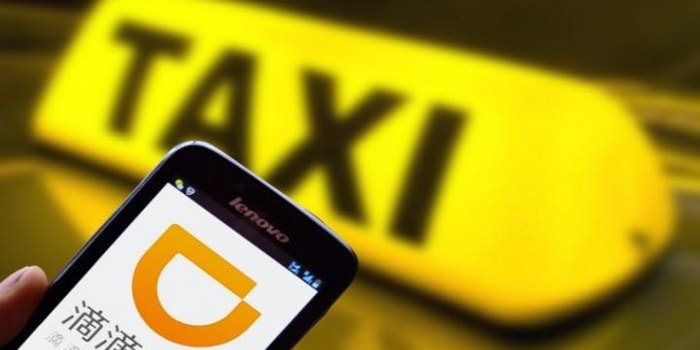Uber passenger service, one of the most valuable startups in the world, decided to sell local business in favor of its Chinese rival, Didi Chuxing. Chinese fairy tale for Uber, just like for many other outlanders in the local market, came unhappy ending.
Findings of the recent surrender are obvious to many. Chinese companies are protected from foreign competition by government regulations and the Great Chinese Firewall. They do not need innovation, but they can develop by copying Western business models. In short, China is double-locked, its companies are under careful tutelage of the state, and art of imitation is their main talent.
At first glance, Uber’s retreat generally corresponds with the ill-fated general trend. The startup conceded its position to Didi, and is now going to focus on its domestic market and to operate anywhere but in China. Uber’s yield was partially triggered by state regulations, signed in late July. Their essence is in ban imposed on subsidies - Uber would spend around $ 1 billion a year to promote Chinese drivers and passengers. Didi, which predecessors were founded three years after launch of Uber, can thrive now, and the same goes to almost all Chinese tech companies.
Old news, this is isolated nature of the Chinese market. Foreign firms stub toe on the government’s blocks at every turn. The state has actually restricted competition in some areas.
Still, 17.7% of Didi is a nice consolation prize for Uber. The company made a valiant effort to gain a foothold in China with its taxi market largest in the world. Presence in the Chinese market brings great bonuses unless you are stopped at the threshold of victory. Because of that, credibility of Chinese hi-tech leaders is small.
Online business passenger traffic, just like in many other areas, is dominated by fierce competition, where the winner takes all. Even Didi itself appeared in 2015 from merger of two local businesses.
Uber has been defeated. Globally, it has reached mark of one billion rides by the end of 2015, after five years in the business; Didi also reached the figure of 1.4 billion alone for 2015 exclusively in China. Uber struggled to jump over its 10% market share in China, yet local culture is Didi’s element. The native is better integrated with social networks, and proved its ability to attract more taxi drivers. With regard to the ban on subsidies, state agencies took a break in the fight that the American company has already lost.
Taxi app Didi includes new features such as bus transportation on demand and requesting a test drive of a new car. Besides, thanks to income from payments and sales of virtual games, Chinese Internet companies are also much less dependent on online advertising than Western competitors are.
One lesson has already been learned. As opposed to Renren, Didi only grew stronger in a fierce rivalry. Competition only makes Chinese startups stronger, so their competitors should be on alert.
source: economist.com
Findings of the recent surrender are obvious to many. Chinese companies are protected from foreign competition by government regulations and the Great Chinese Firewall. They do not need innovation, but they can develop by copying Western business models. In short, China is double-locked, its companies are under careful tutelage of the state, and art of imitation is their main talent.
At first glance, Uber’s retreat generally corresponds with the ill-fated general trend. The startup conceded its position to Didi, and is now going to focus on its domestic market and to operate anywhere but in China. Uber’s yield was partially triggered by state regulations, signed in late July. Their essence is in ban imposed on subsidies - Uber would spend around $ 1 billion a year to promote Chinese drivers and passengers. Didi, which predecessors were founded three years after launch of Uber, can thrive now, and the same goes to almost all Chinese tech companies.
Old news, this is isolated nature of the Chinese market. Foreign firms stub toe on the government’s blocks at every turn. The state has actually restricted competition in some areas.
Still, 17.7% of Didi is a nice consolation prize for Uber. The company made a valiant effort to gain a foothold in China with its taxi market largest in the world. Presence in the Chinese market brings great bonuses unless you are stopped at the threshold of victory. Because of that, credibility of Chinese hi-tech leaders is small.
Online business passenger traffic, just like in many other areas, is dominated by fierce competition, where the winner takes all. Even Didi itself appeared in 2015 from merger of two local businesses.
Uber has been defeated. Globally, it has reached mark of one billion rides by the end of 2015, after five years in the business; Didi also reached the figure of 1.4 billion alone for 2015 exclusively in China. Uber struggled to jump over its 10% market share in China, yet local culture is Didi’s element. The native is better integrated with social networks, and proved its ability to attract more taxi drivers. With regard to the ban on subsidies, state agencies took a break in the fight that the American company has already lost.
Taxi app Didi includes new features such as bus transportation on demand and requesting a test drive of a new car. Besides, thanks to income from payments and sales of virtual games, Chinese Internet companies are also much less dependent on online advertising than Western competitors are.
One lesson has already been learned. As opposed to Renren, Didi only grew stronger in a fierce rivalry. Competition only makes Chinese startups stronger, so their competitors should be on alert.
source: economist.com





